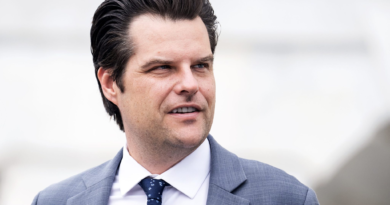The head of the Middle East's largest private oil producer says we'll need '100 times more' renewable energy to meet demand
The world needs to be spending a lot more money on clean energy. Investment in it must exceed $4 trillion annually by 2030 to limit warming to 1.5 degrees centigrade, the International Energy Agency says, compared with just $1.1 trillion spent last year, according to BloombergNEF. But one major oil executive, the head of the largest private oil producer in the Middle East, threw cold water on the idea that renewable energy will replace fossil fuels any time soon. In fact, he told Fortune, we’ll need “100 times more” renewables to fight climate change and offset growing energy demand
“To replace the current system, you need 100 times more [renewables], not three times more,” Majid Jafar, CEO of Crescent Petroleum, said Monday at Fortune’s Global Forum in Abu Dhabi. Crescent Petroleum is the largest private oil and gas producer in the Middle East, with holdings in the UAE, Iraq, and Egypt.
Businesses are growing more skeptical that they’ll be able to ditch oil and coal any time soon. Thirty percent of global businesses expect to still use fossil fuels in the 2050s, despite net zero commitments, reports a survey from the We Mean Business Coalition released earlier this year.
Jafar highlighted the sheer scale of global energy demand—used for not just power generation, but also mobility and petrochemicals. “More energy [is] used by the 1 billion in the OECD, the rich countries, than the rest of the world—the other 7 billion,” he said. Increase in energy demand in the developing world “is where the net increase is coming from—not in Europe or the U.S.”
“You need to add a new Saudi Arabia every two years just to meet the current demand,” he suggested. Renewable energy development “has not met the total increase in global energy demand,” he said.
Alternatives to fossil fuels
Francesco la Camera, director-general of the International Renewable Energy Agency (IRENA), agreed that there wasn’t a single solution to the energy transition. (IRENA, headquartered in the UAE, is a global organization that promotes renewable energy)
“I don’t like this kind of question,” la Camera responded when asked which renewable energy solution is best, instead calling for a “holistic” approach to clean energy. “The question is not if we have to do it or not,” he said, it’s rather the “speed and scale” of that transition that is a choice.
Jafar dismissed one energy alternative: Hydrogen. Despite billions of dollars in investments, “the market is not there,” he said.
Instead, Jafar argued the merely transitioning to a less carbon-intensive fossil fuel can do a lot of good on the emissions front. Replacing diesel power generation in the Middle East with relatively cleaner gas would remove “more than 5 million tons of CO2 a year, which is more or less all the Teslas on the planet,” he claimed.
Can oil companies be renewable companies as well?
Oil and gas companies spent years proclaiming their green energy bona fides, committing to carbon reduction goals and investing in renewable energy. But the sector is rediscovering its appetite for fossil fuels. BP angered green activists earlier this year by scaling back its planned emissions reductions—after reporting record profits. And in the U.S., both ExxonMobil and Chevron are investing tens of billions of dollars to acquire mid-sized oil companies and expand their holdings.
On Monday, Jafar suggested that oil and gas companies will not be good champions of renewable energy. “It’s quite a different business. It’s more of a utility [company], and it’s a finance game that has a different kind of risk-reward balance,” he said.
“I’m not convinced that oil and gas companies can be the most effective in that sector.”




